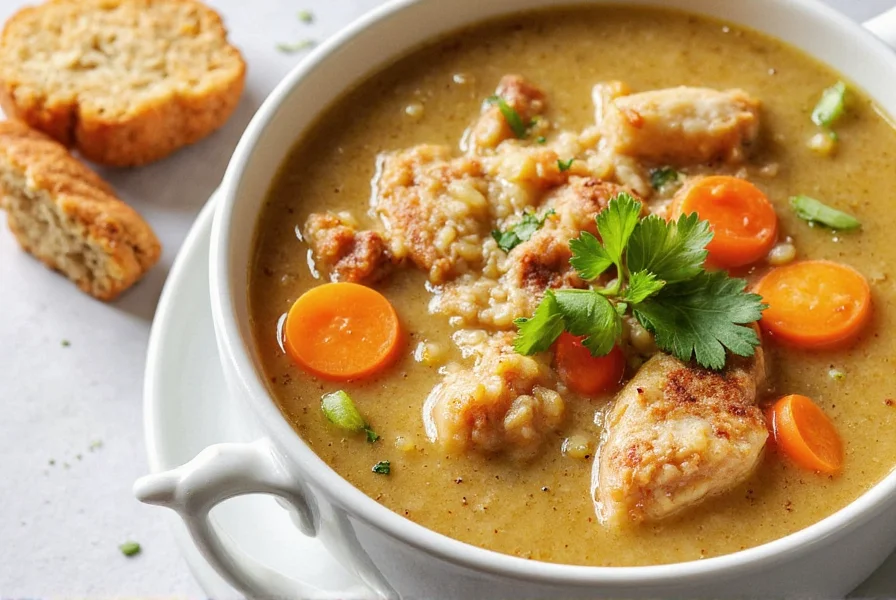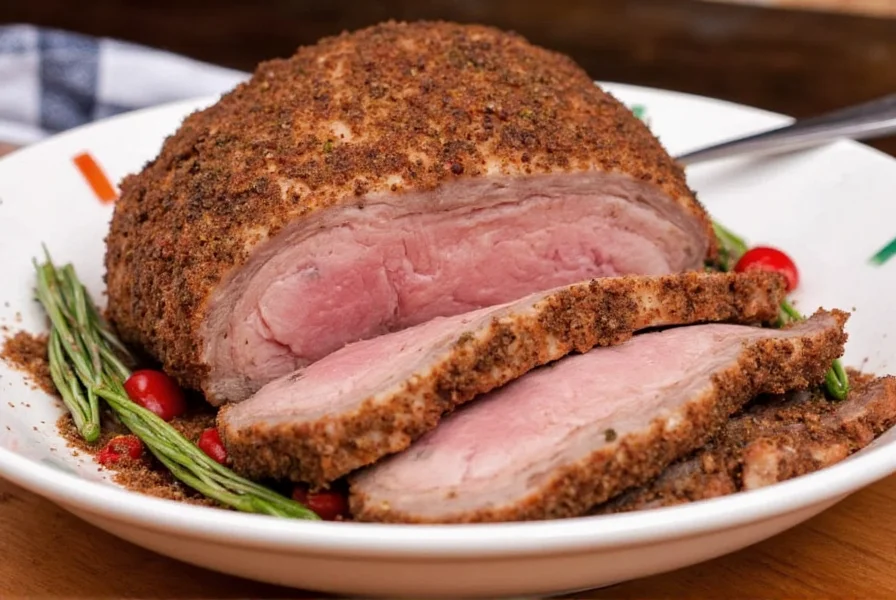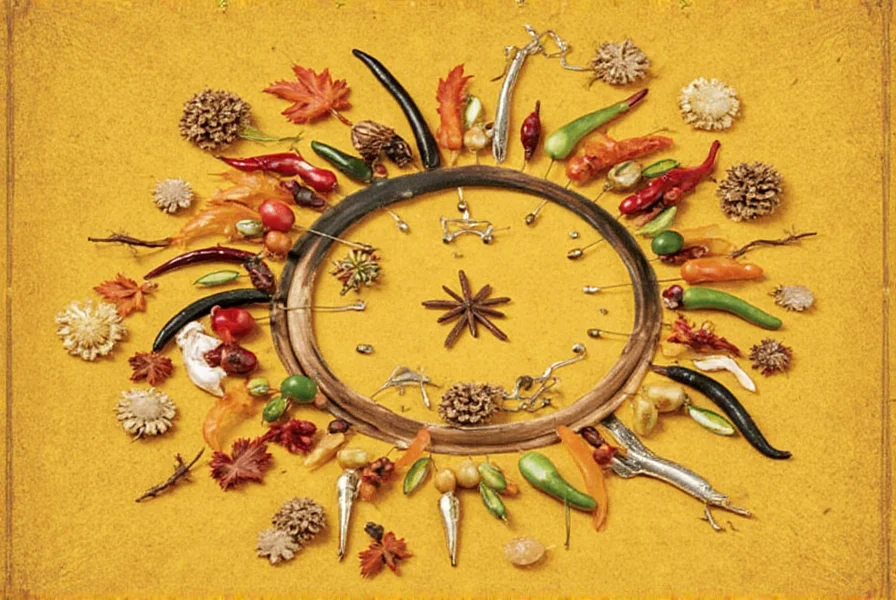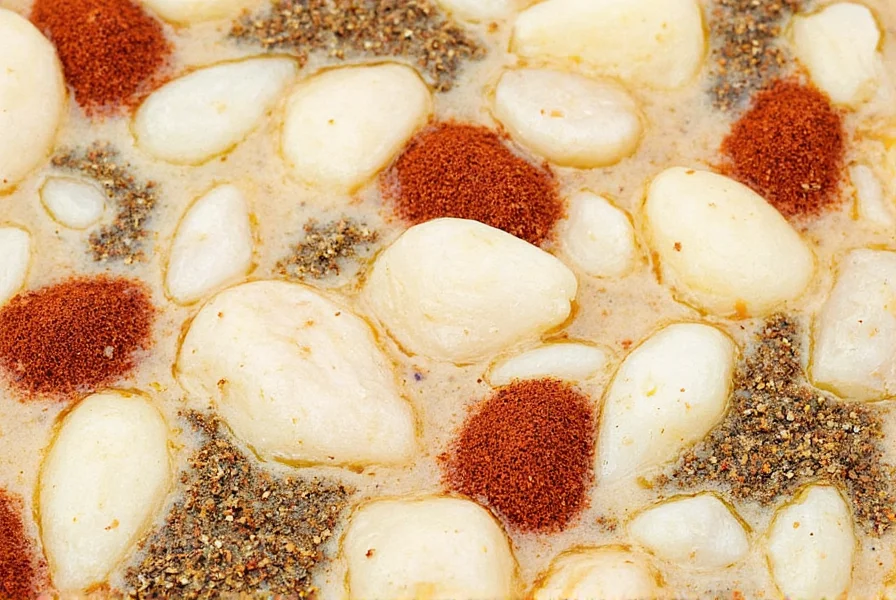Table of Contents
What is Chicken Soup Seasoning?
Chicken soup seasoning is a versatile blend of herbs and spices designed to enhance the flavor of chicken soup. This guide covers everything you need to know, from key ingredients and homemade recipes to the best store-bought options and practical usage tips for perfect results every time.

Key Ingredients in Chicken Soup Seasoning
Chicken soup seasoning typically contains a mix of herbs and spices that work together to create a balanced and rich flavor profile. Here are the most common components and their roles:
- Garlic – Adds savory depth and aromatic complexity, essential for a rich base flavor.
- Onion – Provides natural sweetness and enhances overall complexity of the broth.
- Parsley – Brings fresh herbal notes and visual appeal to the dish.
- Thyme – Delivers subtle earthy undertones that complement chicken perfectly.
- Oregano – Adds warm, slightly bitter notes for depth and complexity.
- Celery Seed – Contributes mild nutty flavor and enhances savory elements.
- Black Pepper – Boosts overall flavor profile with gentle heat and spice.
High-quality blends may also include bay leaves for subtle bitterness or paprika for warmth. Professional chefs emphasize that the balance between these ingredients is critical for achieving optimal flavor without overpowering the chicken.

| Blend Type | Main Ingredients | Flavor Profile | Best Use Cases | Gluten-Free | Price Range |
|---|---|---|---|---|---|
| Classic Herbs | Garlic, Onion, Parsley, Thyme | Earthy, fresh, and light | Traditional chicken soups, pot pies | Yes | $3-$5 |
| Spicy Kick | Garlic, Onion, Oregano, Paprika, Chili Powder | Warm, smoky, and bold | Hearty stews, game day meals | Yes | $4-$6 |
| Asian-Inspired | Garlic, Ginger, Soy Sauce, Sesame Oil | Savory, umami-rich, aromatic | Pho, ramen, Chinese broths | Check label | $5-$8 |

Practical Tips for Using Chicken Soup Seasoning
Follow these expert tips to maximize flavor and avoid common mistakes:
- Start Small: Begin with 1/4 teaspoon per cup of broth and adjust after simmering 5-10 minutes. Most commercial blends contain salt, so reduce additional salt in your recipe.
- Timing Matters: Add seasoning early in cooking for full flavor integration, but add delicate herbs like parsley in the last 2 minutes to preserve freshness.
- Homemade Option: Create your own blend with 2 tbsp dried parsley, 1 tbsp garlic powder, 1 tbsp onion powder, 1 tsp thyme, 1 tsp oregano, 1 tsp celery seed, and 1/2 tsp black pepper for complete control over ingredients.
- Storage Best Practices: Keep in an airtight container away from light and moisture. Homemade blends last 6-12 months; commercial blends typically maintain quality for 1-2 years past the "best by" date.
- Versatile Applications: Use beyond soup as a rub for roasted chicken, in casseroles, mashed potatoes, roasted vegetables, or gravies for consistent flavor enhancement.

Buying Guide for Chicken Soup Seasoning
When selecting chicken soup seasoning, consider these factors:
- Ingredients Quality: Look for pure spices without fillers or artificial additives. Avoid blends with excessive sodium or MSG if you're health-conscious.
- Gluten-Free Certification: Essential for those with gluten sensitivities. Most pure spice blends are naturally gluten-free, but check for cross-contamination warnings.
- Brand Reputation: Choose brands with positive customer reviews and transparent ingredient sourcing.
- Price vs. Value: Higher-priced blends often contain premium ingredients, but many affordable options deliver excellent flavor.
Top 3 Chicken Soup Seasoning Brands Compared
| Brand | Key Features | Pros | Cons | Best For |
|---|---|---|---|---|
| Herb & Spice Co. Classic Chicken Seasoning | Real garlic, onion, thyme; no artificial additives | Easy to use, reliable flavor, affordable | Limited variety | Home cooks, everyday soups |
| Spice Fusion Spicy Chicken Seasoning | Oregano, paprika, chili powder; balanced heat | Unique flavor profile, versatile for multiple dishes | May be too spicy for some | Adventurous cooks, hearty stews |
| Global Flavors Asian-Inspired Seasoning | Garlic, ginger, soy sauce, sesame oil | Authentic umami flavor, excellent for Asian dishes | Contains soy (not gluten-free) | Pho, ramen, specialty broths |

Frequently Asked Questions About Chicken Soup Seasoning
What is the difference between chicken soup seasoning and chicken bouillon?
Chicken soup seasoning is a dry spice blend focused on herbs and spices for flavor enhancement, while chicken bouillon is a concentrated broth in cube, granule, or paste form that provides actual chicken flavor and salt content. Seasoning adds complexity; bouillon provides base flavor and salt.
How much chicken soup seasoning should I use per cup of broth?
Start with 1/4 to 1/2 teaspoon per cup of broth. Simmer for 5-10 minutes, then taste and adjust. Remember that most commercial blends contain salt, so reduce additional salt in your recipe accordingly.
Can I make my own chicken soup seasoning at home?
Absolutely! A basic homemade blend includes 2 tablespoons dried parsley, 1 tablespoon garlic powder, 1 tablespoon onion powder, 1 teaspoon dried thyme, 1 teaspoon dried oregano, 1 teaspoon celery seed, and 1/2 teaspoon black pepper. Store in an airtight container for up to 6 months.
What can I use as a substitute for chicken soup seasoning?
Substitute with: a chicken bouillon cube dissolved in hot water, equal parts garlic powder, onion powder, and dried thyme, or a vegetable seasoning blend for vegetarian options. For quick fixes, use 1/2 teaspoon each of garlic powder, onion powder, and dried thyme per cup of broth.
Is chicken soup seasoning gluten-free?
Most pure spice blends are naturally gluten-free, but always check labels for anti-caking agents or fillers. Homemade blends using pure spices are guaranteed gluten-free. Commercial blends with soy sauce (like Asian-inspired versions) may contain gluten.
Can chicken soup seasoning be used for dishes other than soup?
Yes! It works exceptionally well as a rub for roasted chicken, in casseroles, mixed into mashed potatoes, sprinkled on roasted vegetables, or added to gravy. Its versatility makes it a valuable addition to any pantry.
How long does homemade chicken soup seasoning last?
When stored properly in an airtight container away from heat and moisture, homemade chicken soup seasoning maintains peak flavor for 6-12 months. Commercial blends typically remain safe for 1-2 years past the "best by" date, though flavor may gradually diminish.
Conclusion
Chicken soup seasoning is far more than a simple spice mix—it's a culinary tool that transforms ordinary broth into a rich, flavorful masterpiece. Whether you're making classic chicken soup, experimenting with Asian-inspired broths, or enhancing other savory dishes, understanding the right blend and proper usage will elevate your cooking significantly.
As culinary experts emphasize, "The secret to great soup isn't just the ingredients—it's knowing how to balance them." With this guide, you now have the knowledge to create perfectly seasoned soups every time, whether from scratch or using store-bought blends. Happy cooking!










 浙公网安备
33010002000092号
浙公网安备
33010002000092号 浙B2-20120091-4
浙B2-20120091-4